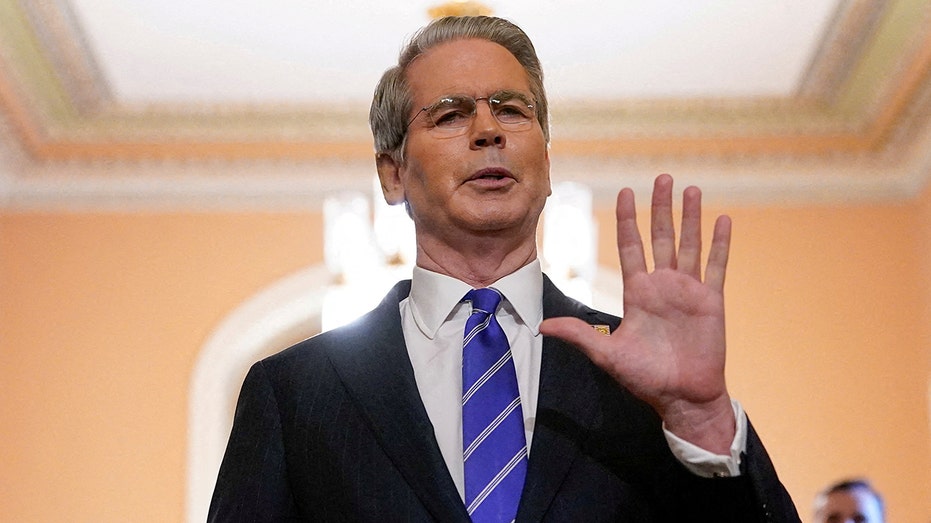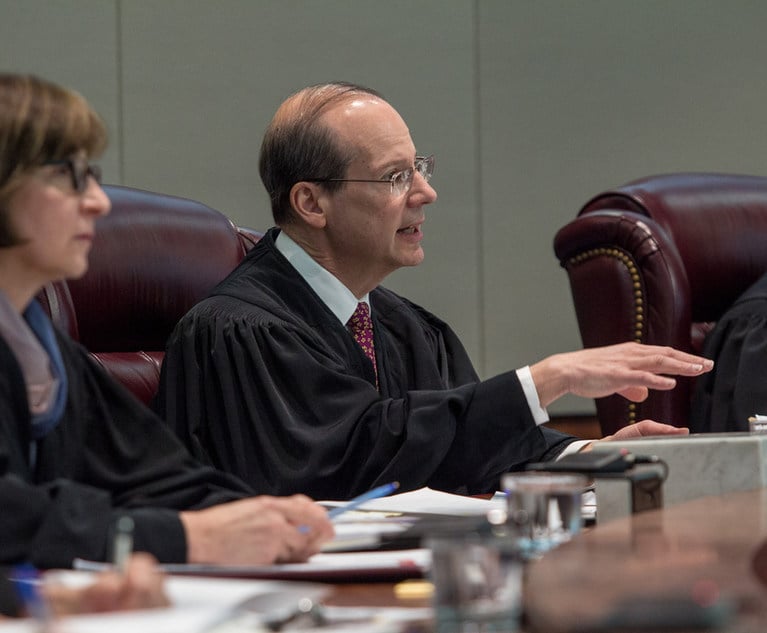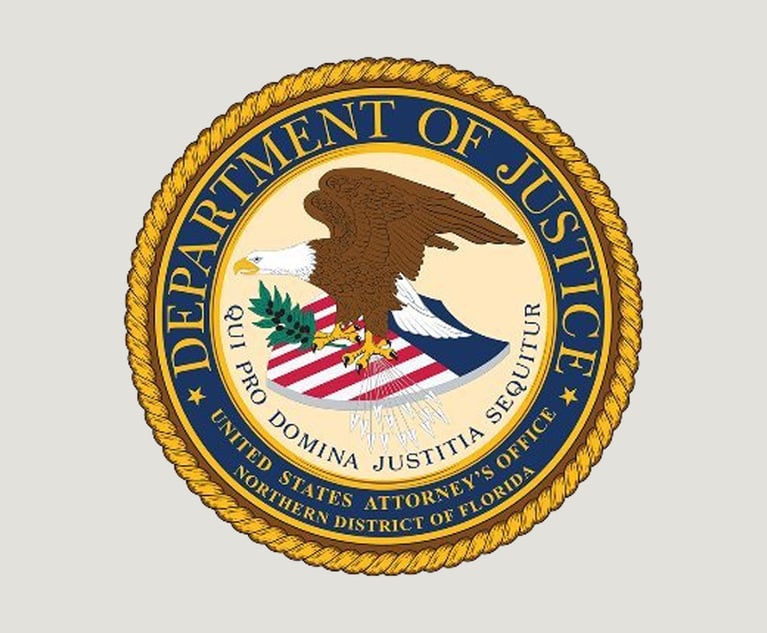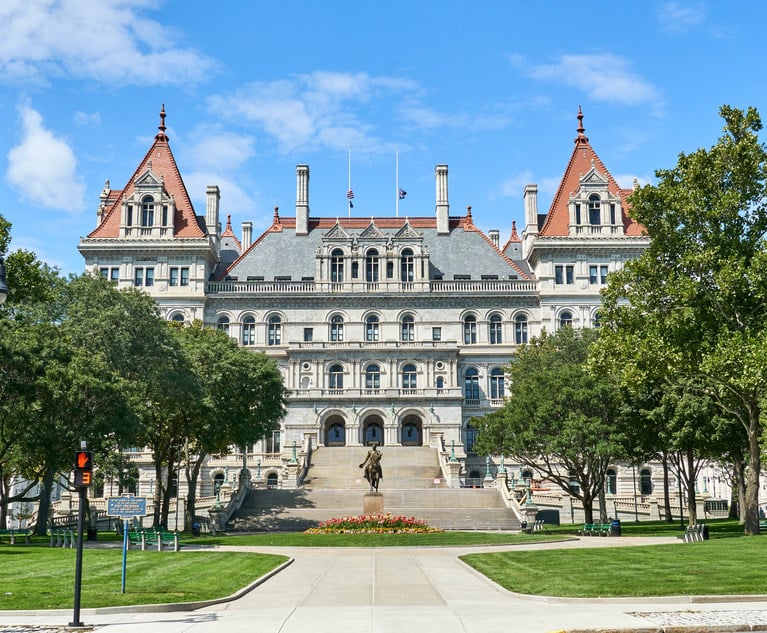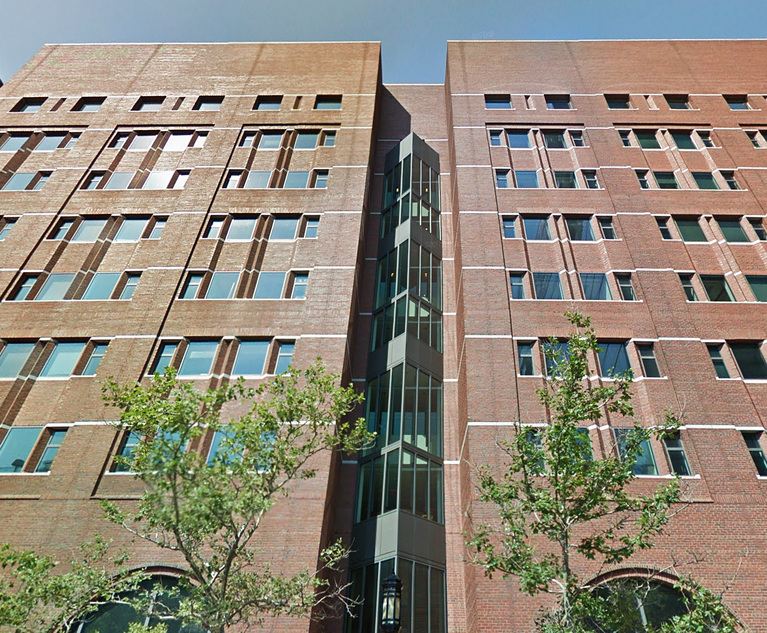A former judge of the Superior Court of New Jersey has touched off a battle with the state judiciary over her attempt to compel testimony from Chief Justice Stuart Rabner in her suit over disability pension benefits.
Deborah Gross-Quatrone is seeking a deposition of Rabner in her suit claiming the judiciary discriminated against her based on disability when it declined to approve her pension.
But Gross-Quatrone allegedly failed to meet the heightened standard for compelling the deposition of a high-ranking public official, and Rabner’s testimony is protected under the deliberative process privilege, according to a defense motion—filed by Kathleen Dohn of Brown & Connery in Westmont—to quash the subpoena.
Gross-Quatrone is seeking Rabner’s testimony in a suit claiming staff in the judiciary torpedoed her application for a disability pension.
The suit claims the judiciary retaliated against her for seeking accommodations for her disability.
Gross-Quatrone seeks damages for violations of the Conscientious Employee Protection Act and the Law Against Discrimination, as well as an order approving her disability retirement.
‘No Longer Capable’
Gross-Quatrone became a judge in 2015 and in 2017 she filed a gender-discrimination lawsuit against Bonnie Mizdol, who was then assignment judge in Bergen County.
That case is pending in U.S. district court.
In 2019, after she experienced a medical episode at work that was related to her chronic lung condition, Gross-Quatrone applied for a disability retirement. In 2020, her application for a disability retirement was denied after the judiciary concluded that she failed to meet the statutory standard for a disability.
Gross-Quatrone filed the disability discrimination suit in April 2021. She left the bench in March 2022 after her initial term ended and she was not renominated for another.
In the latest suit, Gross-Quatrone claimed Mizdol’s alleged harassment caused her to suffer spontaneous nose bleeds and other health problems.
And an alleged “barrage of disturbing treatment at the hands of her superiors” caused Gross-Quatrone stress and deteriorating health. She claimed a neurosurgeon who examined an MRI of her brain concluded she was “no longer capable of making judicial decisions.”
Gross-Quatrone also claimed in the suit that her request for accommodations—including a parking space closer to her chambers, a request to work from 7 a.m. to 4 p.m., and a request to go to doctors appointments Tuesday afternoons—were denied.
She gave Rabner notice on May 7 of her intent to take his deposition.
“We understand he’s the chief justice, but we believe he has knowledge concerning this decision to deny my client’s early disability,” said Ralph Ferrara of Ferrara Law Firm in Marlton, who represents Gross-Quatrone. “In any other litigation, I’d have the right to ask people with knowledge questions. So I’m not sure why it should be any different here. We recognize he’s the chief justice—don’t get me wrong. But he’s a part of the decision-making process for judges seeking permanent disability, so he becomes the fact witness, as far as we’re concerned.”
Judiciary’s Response
Dohn, the lawyer for the judiciary, citing case law, said in her motion to quash that “high-level government officials should not be deposed, absent a showing of first-hand knowledge or direct involvement in the events giving rise to an action, or absent a showing that such deposition is essential to prevent injustice.”
Dohn added in her motion to quash that “Chief Justice Rabner is a high-ranking public official and plaintiff is unable to satisfy the heightened burden required to depose him. Chief Justice Rabner’s testimony is unnecessary because the documents and memorandum that the Administrative Office of the Courts supplied to the Supreme Court in connection with plaintiff’s disability application have already been produced.”
“If, as plaintiff claims, the Administrative Office of the Courts tainted the process through the documents and memorandum provided to the Justices, those documents speak for themselves,” Dohn wrote in her motion to quash. .
Even if Gross-Quatrone could establish the heightened burden for compelling Rabner to testify, any information she seeks is allegedly protected from disclosure by the deliberative process privilege, Dohn claimed.
“First, the information on the discussions and considerations of the justices in deciding whether to grant plaintiff disability retirement is inherently pre-decisional. Second, all discussions and analysis regarding whether or not to grant plaintiff disability retirement were deliberative in nature as they inevitably consisted of opinions, recommendations, and advice on the subject,” Dohn wrote.
Dohn did not respond to a message about the case.

